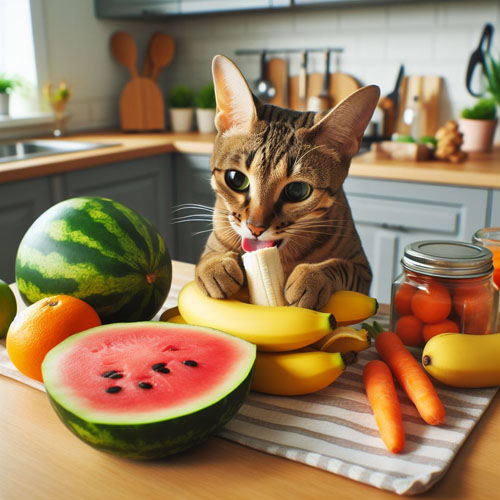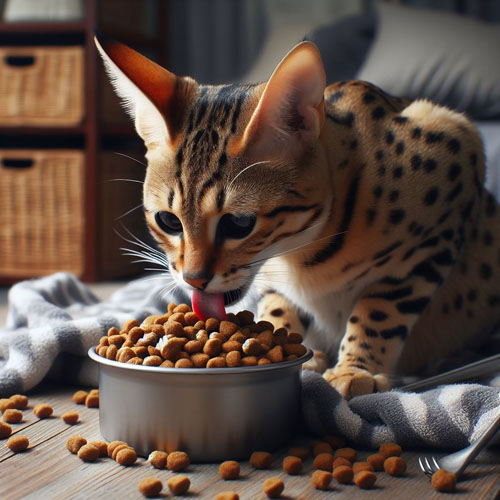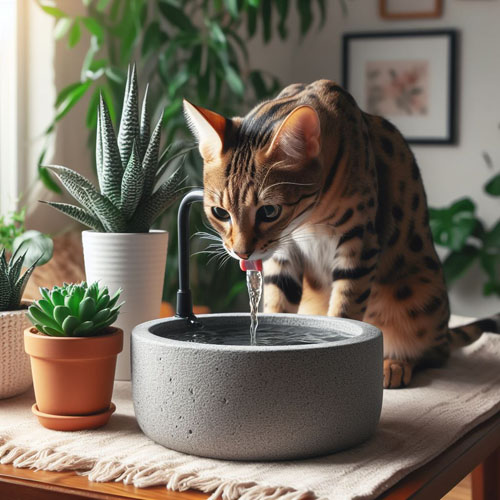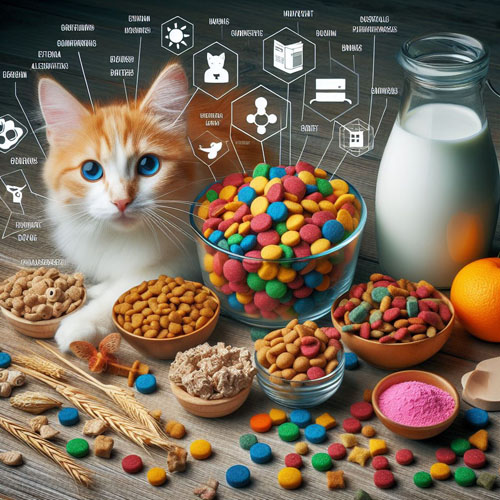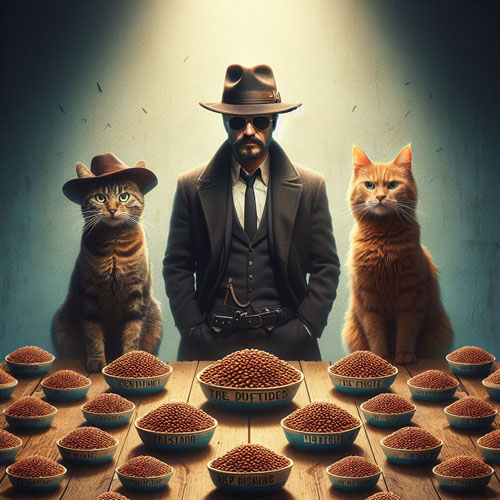The Dangers of Unbalanced Diets and How to Save Your Cat from Overindulgence
Feline Nutrition Unveiled: The Dangers of Unbalanced Diets and How to Save Your Cat from Overindulgence”
The feline diet is unique and distinct, reflecting the evolutionary traits and biological needs of domestic cats. Unlike many other animals, cats are obligate carnivores, meaning their nutritional requirements are predominantly met through animal-based proteins. This specialization stems from their wild ancestors, where hunting and consuming prey shaped their dietary preferences. The feline digestive system is designed to efficiently extract nutrients from animal tissues, and key elements like taurine, arachidonic acid, and vitamin A are essential for their well-being. Understanding and respecting the obligate carnivore nature of cats is crucial for providing a diet that aligns with their physiological requirements, promoting optimal health, and ensuring they thrive in our human-centric environments.
In the pursuit of pampering our feline companions, it’s easy to fall into the trap of overindulgence. As loving cat owners, we often express our affection through treats and lavish meals. However, the consequences of unbalanced diets can be severe, potentially jeopardizing the health and well-being of our cherished pets. In this article, we’ll explore the dangers of unbalanced diets for cats, shedding light on the risks and providing essential guidance on maintaining a nutritionally sound and fulfilling lifestyle for your furry friend.
The Allure of Treats: Balancing Affection and Nutrition: While treating our cats is a delightful way to express love, it’s crucial to strike a balance between affection and nutritional responsibility. Treats, if not moderated, can contribute to an unbalanced diet, leading to a range of health issues. Most cat treats are loaded with wheat, corn, or soy and use low-quality proteins. There is a fine line between pampering your cat and ensuring they receive the essential nutrients for optimal health.
The Obesity Epidemic: Unintended Consequences of Overindulgence: One of the most prevalent risks associated with unbalanced diets is obesity. Obesity in cats has become an epidemic, with serious implications for their health. Excess weight can lead to a myriad of problems, including diabetes, joint issues, and a reduced lifespan. Delve into the factors contributing to feline obesity and learn how to prevent and address this growing concern through mindful nutritional choices.
Understanding Cat Nutritional Needs: Beyond the Basics: Cats have unique nutritional requirements that differ from other animals, including dogs. The lack of specific nutrients in their diet can result in deficiencies that manifest as health problems. Explore the essential nutrients crucial for feline health, from protein and fat to vitamins and minerals. Gain insights into crafting a well-balanced diet that meets your cat’s specific dietary needs.
The Myth of “Humanization”: Pitfalls in Treating Cats Like Humans: The trend of humanizing pets, treating them as if they share our dietary preferences, can lead to unbalanced diets. Cats are obligate carnivores, meaning their diet primarily consists of animal-based proteins. Unintentionally feeding them foods intended for humans, or diets high in carbohydrates, can disrupt their digestive systems and lead to health complications. Uncover the myth of “humanization” and learn how to provide a diet that aligns with your cat’s biological needs.
Health Risks Beyond Weight: Unbalanced Diets and Organ Dysfunction: Unbalanced diets not only contribute to weight issues but can also result in organ dysfunction. Specific nutrients play a crucial role in maintaining the health of organs such as the liver and kidneys. Explore the potential risks of organ dysfunction associated with unbalanced diets and discover the importance of comprehensive nutritional planning to safeguard your cat’s internal well-being.
Reading Labels: Navigating the World of Cat Food Products: Understanding cat food labels is essential for making informed decisions about your cat’s diet. Learn to decipher nutritional information, ingredient lists, and feeding guidelines. Uncover common pitfalls in commercial cat food products and gain the knowledge to select high-quality options that align with your cat’s nutritional needs.
Transitioning to Balanced Diets: Gradual Changes for Optimal Health: For cats accustomed to unbalanced diets, transitioning to a more balanced and nutritious regimen requires a thoughtful approach. Abrupt changes can cause digestive upset. Explore gradual transition methods, incorporating new foods into your cat’s diet while monitoring their health and well-being. Transforming their diet can be a positive and rewarding experience for both you and your feline companion.
Consultation with Veterinarians: Tailored Nutrition Plans: Every cat is unique, and their nutritional needs may vary based on factors such as age, breed, and health conditions. Consultation with a veterinarian is essential to formulate a tailored nutrition plan for your cat. Discover the role of veterinary guidance in creating a personalized diet that addresses your cat’s specific requirements and promotes long-term health.
In conclusion, the dangers of unbalanced diets for cats are multifaceted, extending beyond weight concerns to impact overall health and longevity. As responsible cat owners, it is our duty to prioritize their nutritional needs, striking a harmonious balance between affectionate treats and a well-rounded diet. By understanding the risks and taking proactive measures, we can ensure that our feline companions thrive on a nutritionally sound and fulfilling journey throughout their lives.
Keywords: Cat Nutrition, Balanced Cat Diet, Feline Health Risks, Cat Obesity, Nutritional Guidelines for Cats

